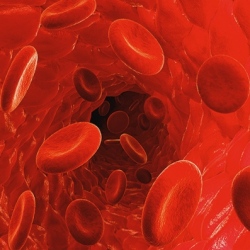
A molecule that accumulates in the blood with age may be linked to cognitive decline, said scientists Monday who mooted hopes of a memory-restoring treatment. The protein, dubbed B2M, is found in higher concentrations in the blood and cerebral spinal fluid of ageing humans, they said. And in mice, inhibiting B2M improved learning and memory in lab experiments.
"We are very excited about the findings because it indicates that there are two ways to potentially reverse age-related cognitive impairments," study co-author Saul Villeda of the University of California San Francisco told AFP.
"One is to introduce pro-youthful blood factors and the other is to therapeutically target pro-ageing factors" like B2M, he said by email. Villeda had participated in another study, published last year, which found that injections of juvenile mouse blood boosted learning and memory in older rodents.
Scientists measure the animals’ ability to remember cues indicating the position of hidden platforms in water, similar to having to recall physical landmarks to remember where you left your car in a parking lot, a function that declines with age.
Old mice who received young blood in the first study could find the hidden platforms easier, though it was not clear why or how. Ageing is associated with a progressive decline in cognitive function, and slower regeneration of message-relaying neurons in the brain.
